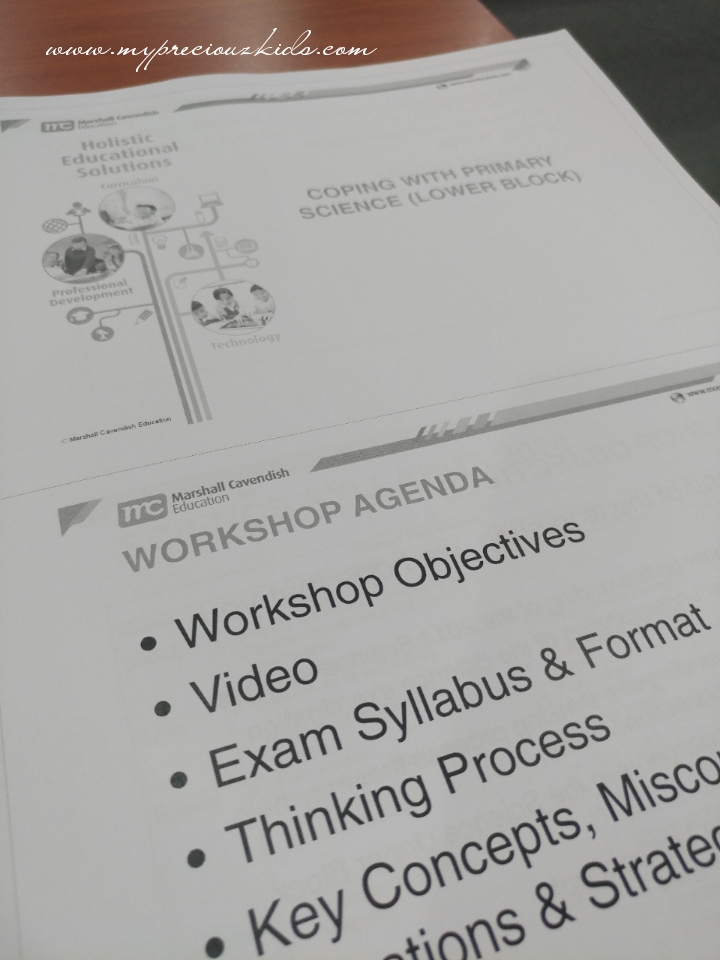After a month hiatus (and having a term of primary school science), I am happy to be back for another parents science workshop organised by Marshall Cavendish. It was conducted by Kelvin Chia, who was also the same trainer for my first ever science workshop. You can read more about him and my review of my parents science workshop conducted by him here.
In fact, for today’s workshop for the benefit for new attendees, he also touched on the same information covered in the prior workshop. So given that I had attended his prior workshop, the first 30 minutes was more of a repetition for me. From covering the new PSLE exam formats to science being a spiral curriculum , this was covered in the 1.5 hour session previously. You can read all about this in my earlier review. He also emphasis on the 5-step in answering OEQ (open ended question). The trick is not to use these steps for all questions but only for question whereby the student is stumped and have difficult in answering the question.
He also touched on some strategies to strengthen the knowledge and love for science though story tellings, virtual labs (for eg. https://phet.colorado.edu/en/simulations/category/new) and flash files (https://www.edumedia-sciences.com/en/media/122-digestive-tract). Besides that, parents can expand the science knowledge by hands-on activities and also through documentaries.
Thereafter, he went through the PSLE science syllable from the MOE websites in specific the lower block syllable. He emphasized which are the simpler concepts and the harder one where students will often have trouble relating and understanding. For eg the concept of cycles in matter in particular the state of gas as it is not easily observable.
Another concepts which are not so easy for p3 and p4 to grasp is heat and light. In general, life sciences like life cycle of plants and animal or the human systems would be easier concepts to understand than physical science whereby there are many ways of application (which is the 60% of the exam paper). Life sciences are more knowledge in nature and less in application in nature (PSLE Science is 40% knowledge and 60% application of knowledge and process skill.)
It is more important for the student to be able to identify the topic and concept that is tested in the question to be able to answer the question correctly. It is also important to answer the question in context and than to give many irrevelant facts.
Even after going through the syllable in Term 1 – Living and Non-Living things (which is the simplest concept being the first topic in primary school science), I often has difficulty answering the question correctly even for such simple concept. Hence, it is imperative to identify the concept that the question is testing to be able to answer to the point. It is a steep learning curve for me as a parent, but I am confident which more understanding of how the science papers are set, I can guide my son to score better in paper 2 which is the OEQs.
For the complete list of parents science workshops in Term 2 (priced at SGD 20 or SGD35) , click here.
Disclaimer: This is a sponsored post. No monetary compensation was received. All opinions are my own.
Share the article
